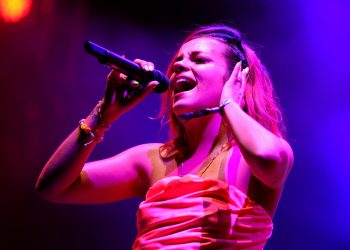Nick Offerman’s Unflinching Stand Against Homophobia at the Spirit Awards
When Nick Offerman took the stage at the 2024 Film Independent Spirit Awards, he wasn’t just there to accept a well-deserved trophy for Best Supporting Performance in a New Scripted Series. He was there with a mission: to confront the homophobia that had reared its ugly head against his poignant role in HBO’s The Last of Us. Offerman isn’t one to shy away from tough conversations—his portrayal of Bill, a gruff survivalist who finds love amid a zombie apocalypse, had already been lauded and, in some quarters, unfairly condemned. The actor, known for swinging a mean ax both on-screen as the stoic Ron Swanson and off-screen as a master woodworker, swung an equally powerful verbal strike against bigotry. The impact of Offerman’s stand is a reflection of the ongoing struggle against discrimination in the entertainment industry, underscoring the importance of allyship and the power of a public platform to challenge societal prejudices.
As he stood before his peers, Offerman acknowledged the creative minds that brought The Last of Us to haunting life—writers Neil Druckmann and Craig Mazin, director Peter Hoar, and co-star Murray Bartlett, whose collective genius framed a love story that transcended labels. In the face of backlash, Offerman’s words burned bright, emphasizing that the episode titled “Long, Long Time” wasn’t a “gay story,” but rather a universal tale of love and humanity, a testament to the show’s depth and emotional resonance. His message was clear: art should be judged on its ability to connect with audiences on a human level, not by the sexual orientation of its characters.
Celebrating Love in the Face of Prejudice with HBO’s The Last of Us
The Last of Us isn’t your run-of-the-mill post-apocalyptic narrative; it’s a canvas where the human condition is painted in strokes of hope, despair, and, most importantly, love. The episode that sparked controversy, “Long, Long Time,” could have been a mere detour from the main plot, but instead, it established a profound thematic foundation for the series. Offerman’s character, Bill, isn’t defined by his sexuality; he’s a man who, against the odds of a crumbling world, finds a soulmate to share in the chaos of a reality overrun by zombies—a scenario that, despite its fantastical elements, speaks to the very real desire for connection that lives within us all. This narrative decision subtly elevated the show beyond the typical genre confines, inviting the audience to consider the universality of human emotions, even in the most dire of circumstances.
HBO has indeed struck a chord, rendering a faithful adaptation of the acclaimed video game and receiving critical praise not just for its visceral thrills, but for the emotional depth that draws its audience into a narrative that’s as intimate as it is epic. It’s this courage to explore complex relationships, to show that love is love regardless of whom it’s between, that sets The Last of Us apart and that Offerman stood up for, with the full support of a network that values independent storytelling. Such bold storytelling choices echo the cultural shift towards more inclusive narratives that reflect the diverse tapestry of human relationships.
The Art of Storytelling and How Offerman’s Role Transcends Labels
The real power of storytelling lies in its ability to transcend labels and speak to the core of our shared human experience. Offerman’s Spirit Awards speech didn’t just set the record straight on the intentions behind his role; it cut to the heart of what makes his portrayal of Bill resonate so deeply with viewers. The love story that unfolds in “Long, Long Time” is as much about survival and companionship as it is about the romantic bond between Bill and his partner, portrayed with heartfelt authenticity by Bartlett. Offerman’s dedication to his role brought to life a multifaceted character whose journey challenges audience perceptions and champions the idea that in the realm of fiction, and life, love knows no bounds.
This narrative choice by the creators of The Last of Us, to focus on the emotional connection rather than on the characters’ sexual orientation, flips the script on traditional storytelling. It challenges preconceived notions and dares to suggest that in the midst of an apocalyptic nightmare, the labels we so often cling to mean little in the face of genuine human affection and loyalty. And Offerman’s embodiment of Bill stands as a beacon, heralding a new era of storytelling where characters are celebrated for their complexity and humanity, not reduced to a single aspect of their identity. By doing so, the show not only entertains but also educates and encourages empathy, promoting a society where understanding trumps fear and ignorance.
Acknowledging the Team and The Collaborative Spirit Behind The Last of Us’ Success
No actor is an island, and Offerman knows it. In his fiery acceptance speech, he poured gratitude onto the team that made his award possible—the dream weavers who spun the fabric of The Last of Us into a story that has touched so many. He tipped his hat to Druckmann, the co-president of Naughty Dog, who birthed the video game that started it all, and to Mazin, whose vision as series creator brought depth and nuance to the small screen. The directorial prowess of Hoar and the on-screen chemistry with Bartlett were pivotal, and Offerman’s recognition of their contributions underscored the collaborative spirit necessary for such a storytelling triumph. He also extended his appreciation to the behind-the-scenes crew, acknowledging that each lighting technician, set designer, and production assistant played a role in crafting the show’s visceral reality.
Even Offerman’s wife, Megan Mullally, received a heartfelt thank you, credited for encouraging him to embrace a role that would challenge him and resonate with audiences worldwide. This acknowledgment of the collective effort serves as a reminder that the stories that truly impact culture are born of a synergy between talented individuals united by a common goal: to craft experiences that push boundaries and initiate dialogues. It underlines the fact that in the tapestry of filmmaking, every thread, every contribution, is crucial to the integrity and impact of the final piece.
The Cultural Impact of The Last of Us and the Anticipation of Season 2
As HBO gears up for the highly anticipated second season of The Last of Us, set for release in 2025, the cultural footprint of the series is undeniable. With returning favorites Pedro Pascal and Bella Ramsey and the addition of fresh faces like Kaitlyn Dever, Isabela Merced, and Young Mazino, the next chapter promises to delve deeper into the post-apocalyptic saga that has captivated audiences. The enthusiasm surrounding the upcoming season is a testament to the show’s ability to weave complex, character-driven narratives that resonate with a global audience, sparking fervent discussion and anticipation.
The show’s impact extends beyond the screen, sparking conversations about love, prejudice, and what it means to retain one’s humanity in the face of societal collapse. Offerman’s defense of the show’s storytelling choices at the Spirit Awards not only highlighted the progress that’s been made in terms of representation and narrative complexity but also served as a clarion call for the continuous fight against homophobia and bigotry in all its forms. It was a moment that will undoubtedly be looked back upon as a highlight in the ongoing discourse about the role of entertainment in shaping cultural attitudes.
The Last of Us, with its blend of harrowing action and heartfelt storytelling, has set a new standard for television, proving that even amidst the most fantastical settings, the stories that resonate most are those that reflect our own struggles, fears, and desires. Offerman’s passionate stand is a testament to the power of entertainment to effect change and to the vital importance of stories that honor the full spectrum of human experience. As the series moves forward, it carries with it the fiery spirit of its defenders, blazing a trail for a future where love stories are just that—stories of love—regardless of whom they happen to be about. The anticipation of Season 2 not only lies in its continuation of a gripping tale but also in its commitment to championing inclusivity and offering a platform for diverse narratives that mirror the richness of the world around us.










